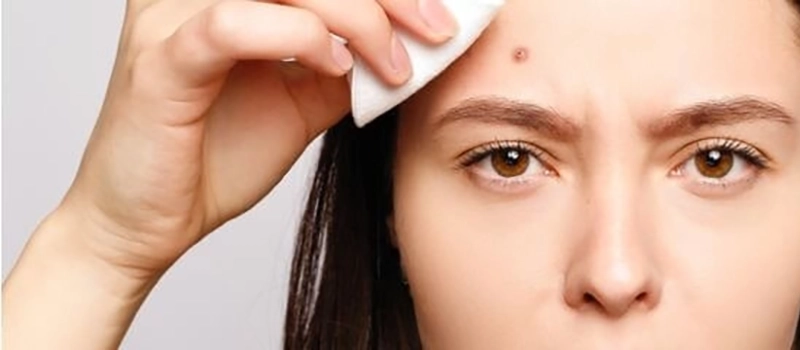
Acne is a skin blemish condition that affects most people at some point during their youth. It occurs most acutely when people are young adolescents and experiencing puberty. However, it can affect older individuals too and the problem with skin blemishes is that you’re not able to cover them up and hide them from view like you can if they were to be elsewhere besides the face. Fortunately, there are a number of different effective acne medications that sufferers can use to clear up their skin. We’ll look at acne pills and acne creams here, and discuss what makes these products effective.
Before listing out the different types of acne medication here, we should mention that all of these acne pills are most effective when paired with better diet and lifestyle choices for acne prevention. First and foremost of these is to avoid fatty, greasy foods. Foods that are heavy in trans or saturated fats (including most fast food options) promote excess sebum production – the primary cause of acne. Other good suggestions here is to keep well hydrated by drinking plenty of fresh water and avoiding heavy use of makeup for young women.
As is the case with any type of product, certain brands and ones are better than others. Acne medication is no exception, and often certain acne pills are a better choice for a person based on the nature of their outbreaks and which medications they tolerate better.
Here’s our list of the best acne medications:
We’re going to add another medication here that – while not acne medications themselves – are good choices for people who get acne as a result of taking other similar medications. Use of birth control medication can cause acne for young women, but for those who need to continue using oral contraceptives then Triphasil is a better choice because it’s formulation doesn’t promote acne the way other types do.
There are laser treatments for acne available now, but usually this is only looked into or suggested by a physician when prescription or non-prescription med therapy approaches have shown themselves to be ineffective. Lastly, the best reassurance that most young people will receive regarding acne is that one they enter the backside of their 20s it’s usually not much of an issue at all anymore.